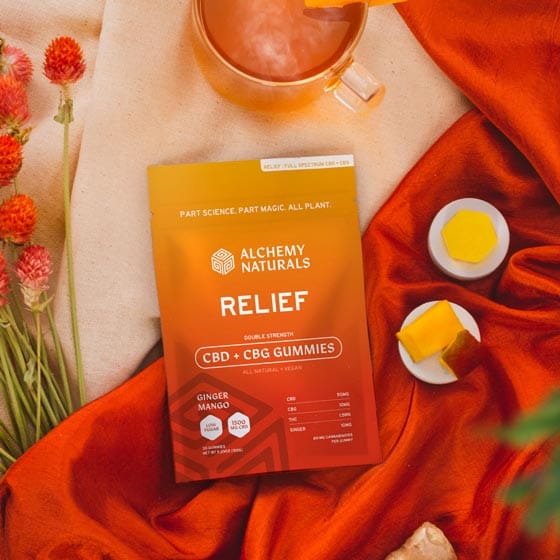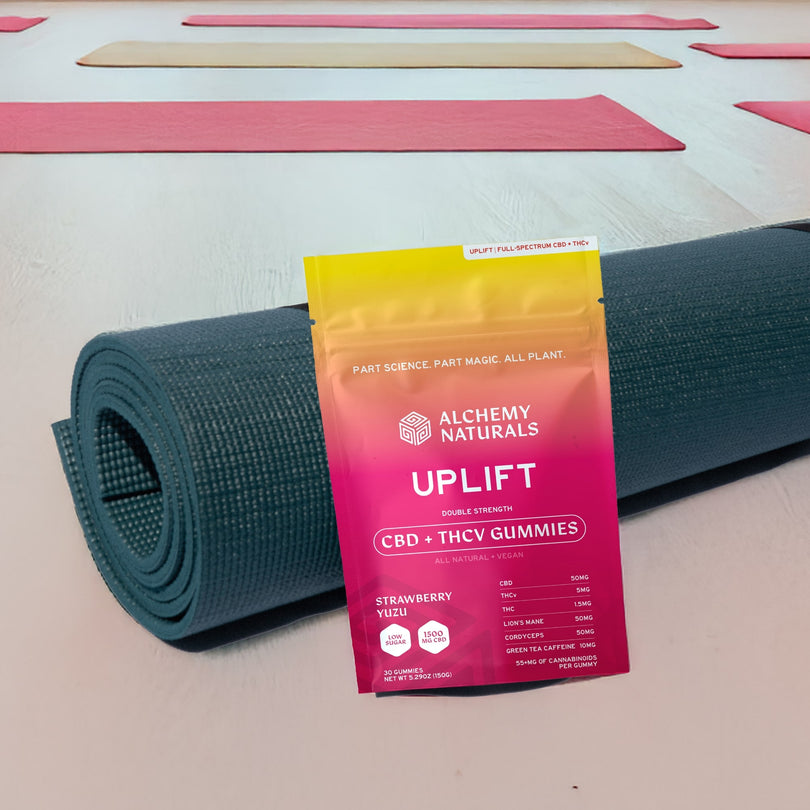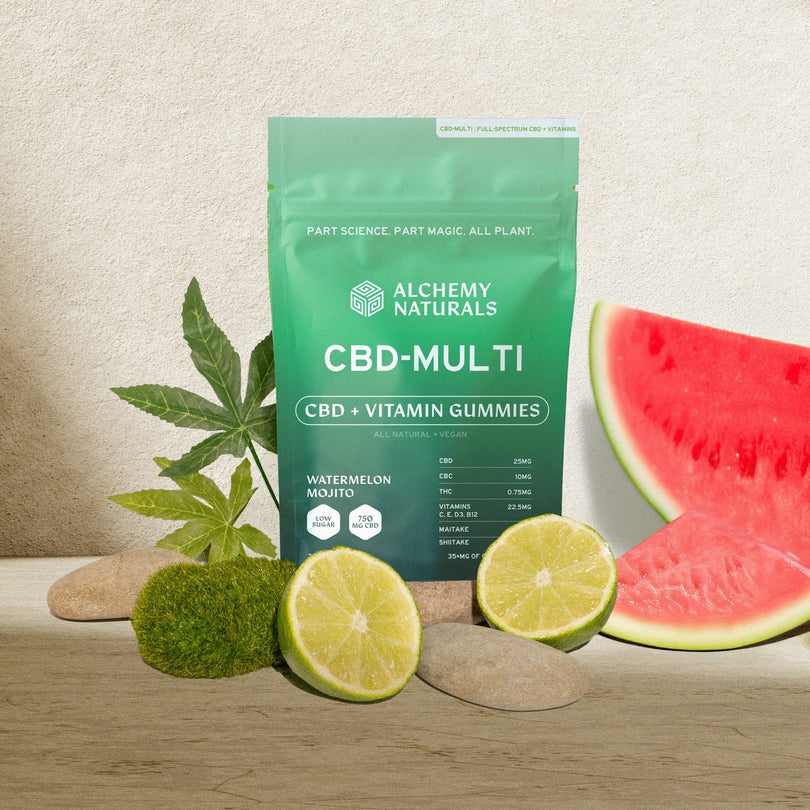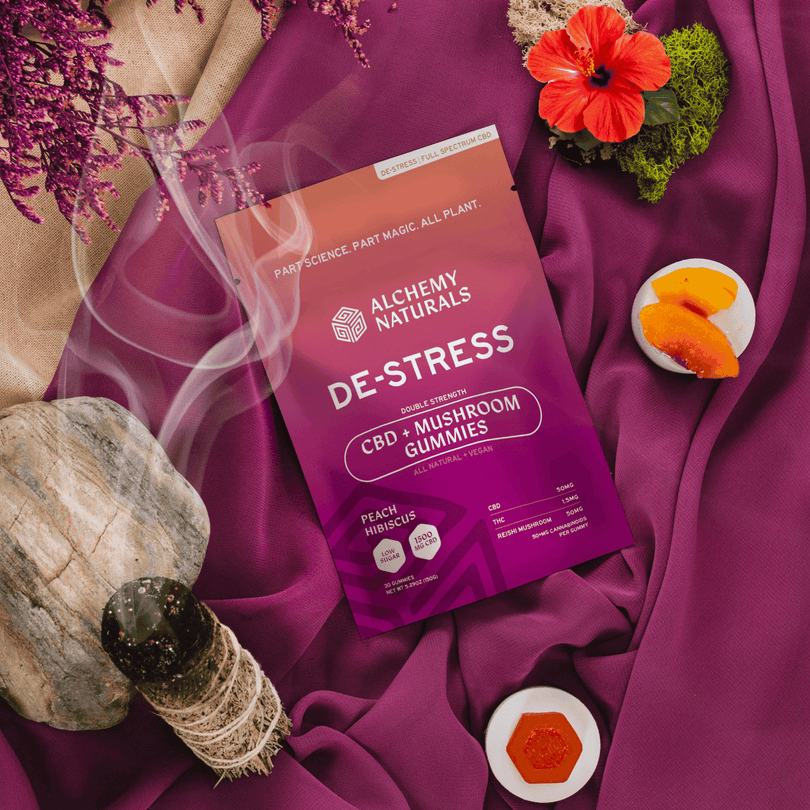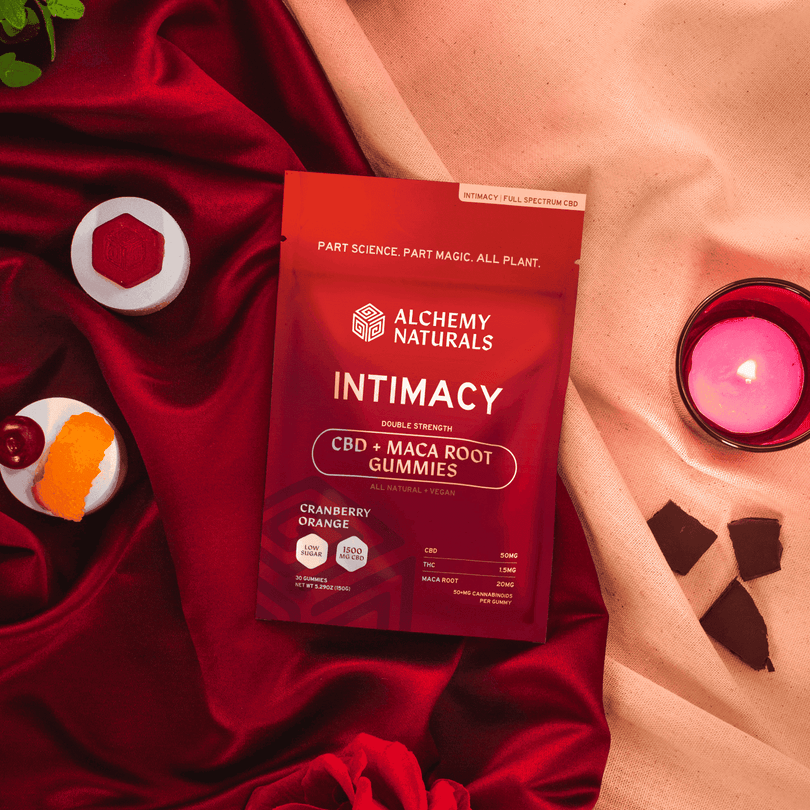Introduction: Clearing Up the Confusion
If you’ve ever stood in a store aisle (or scrolled endlessly online) staring at bottles labeled hemp oil and CBD oil, you’re not alone. The wellness world has blurred these terms so much that even savvy shoppers get confused. Are they the same? Do they work the same way? And most importantly— which one should you actually take?
At Alchemy Naturals, we believe knowledge is the best ingredient you can add to your wellness routine. So let’s break down hemp oil vs CBD oil once and for all—where they come from, how they’re used, and the unique benefits of each. By the end, you’ll know exactly what belongs in your daily ritual.
Why Hemp Oil and CBD Oil Are Not the Same
The biggest difference between hemp oil and CBD oil comes down to what part of the hemp plant they’re made from:
-
Hemp Oil (Hemp Seed Oil): Pressed from the seeds of the hemp plant.
-
CBD Oil: Extracted from the flowers, leaves, and stalks of hemp, where cannabinoids (like CBD) actually live.
That one distinction changes everything—from the nutrients inside to how your body uses them.

Visual Guide: Hemp Oil vs CBD Oil at a Glance
| Feature | Hemp Oil (Hemp Seed Oil) | CBD Oil (Cannabidiol Oil) |
|---|---|---|
| Source | Cold-pressed hemp seeds | Flowers, leaves, and stalks of hemp |
| Main Components | Omega-3, Omega-6 fatty acids, Vitamin E | Cannabinoids (CBD, CBG, CBN), terpenes |
| Psychoactive? | No | No (trace THC <0.3%) |
| Common Uses | Cooking oil, skincare, nutritional support | Stress relief, sleep support, pain management, mood balance |
| Key Benefits | Heart health, skin health, nutrient boost | Supports endocannabinoid system, relaxation, recovery |
| Regulation | Food/supplement grade | Dietary supplement, farm bill compliant |
How Hemp Oil Works in the Body
Hemp oil doesn’t contain cannabinoids like CBD or THC. Instead, it’s packed with nutrients and healthy fats that your body uses as building blocks for overall wellness:
-
Essential Fatty Acids (Omega-3 & Omega-6): Support heart health, brain function, and joint mobility.
-
Vitamin E: A powerful antioxidant that supports skin and immune health.
-
Protein & Minerals: Hemp seeds provide plant-based nutrition in an easily digestible form.
Think of hemp oil as a nutritional booster—similar to flaxseed or chia oil—best for skin, heart, and general wellness, but not something that interacts with your endocannabinoid system (ECS).
How CBD Oil Works in the Body
CBD oil, on the other hand, contains cannabinoids that communicate with your endocannabinoid system (ECS)—the internal network that helps regulate balance in mood, sleep, stress response, and pain perception.
-
CBD (Cannabidiol): Helps promote calm, balance mood, and reduce everyday stress.
-
CBN (Cannabinol): Often used in sleep formulas (like our Sleep CBD Oil).
-
CBG (Cannabigerol): Known for soothing properties (like in our Relief CBD Oil).
-
Terpenes: Plant compounds that enhance effects through the entourage effect.
CBD oil isn’t about nutrition—it’s about functional wellness support.
The Big Difference: Nutrition vs Function
Here’s the easiest way to remember it:
-
Hemp Oil = Nutrition → great for your diet, skin, and cooking.
-
CBD Oil = Function → great for stress, sleep, recovery, and mood balance.
Both come from hemp, but they serve totally different purposes in your wellness toolkit.

Misleading Labeling
One major issue we see online (and in stores) is mislabeling. Some products labeled “hemp oil” are actually CBD oil—and vice versa.
👉 Pro Tip: If you want CBD benefits, always look for terms like full-spectrum, broad-spectrum, or CBD isolate on the label. If the product only says hemp seed oil—you’re not getting CBD.
At Alchemy Naturals, transparency is key. Our oils clearly list their cannabinoids and exact mg per serving so you always know what you’re getting.
Real-World Uses
Many top-ranking sources stop at science but don’t explain when to use each. Let’s fill that gap:
Best Times to Use Hemp Oil
-
Adding to smoothies or salad dressings for nutrition
-
Supporting skin hydration with topical application
-
General wellness supplement for healthy fats
Best Times to Use CBD Oil
-
Before bed to improve sleep quality
-
After workouts for recovery support
-
During stressful periods to promote calm and focus
Benefits Side-by-Side
Here’s a side-by-side view of what each offers:
| Benefit | Hemp Oil | CBD Oil |
|---|---|---|
| Nutritional boost | Yes | No |
| Heart health support | Yes | Indirect |
| Skin hydration | Yes | Sometimes |
| Mood support | No | Yes |
| Sleep support | No | Yes |
| Relief & comfort | No | Yes |
| ECS interaction | No | Yes |

How to Choose Between Hemp Oil and CBD Oil
If you’re still wondering which belongs in your wellness routine, here’s a quick breakdown:
-
Choose Hemp Oil if… you’re looking for a nutrient-rich addition to your diet or skin care.
-
Choose CBD Oil if… you want natural support for better sleep, a calm mind, or overall mood and body balance.
Better yet, you don’t always have to choose. Many people use hemp oil in cooking and CBD oil for functional wellness.
Quality Matters: Why Alchemy Naturals Oils Stand Out
Not all CBD oils are created equal. At Alchemy Naturals, our oils are:
-
Full-spectrum: You get the full entourage effect with cannabinoids + terpenes.
-
PhD-formulated: Crafted with functional botanicals like chamomile, turmeric, and passionflower.
-
Transparency-tested: Third-party lab tested for purity, potency, and compliance.
-
Conveniently dosed: Each dropper has a clear guide, so you know exactly how much you’re taking.
✨ Try our Sleep CBD Oil or Relief CBD Oil to see the difference yourself.
Frequently Asked Questions
Q: Is hemp oil the same as CBD oil?
No. Hemp oil comes from seeds and contains no CBD. CBD oil comes from flowers/leaves and contains cannabinoids.
Q: Can hemp oil make you high?
Nope—hemp oil has no THC or psychoactive compounds.
Q: Which is better for sleep: hemp oil or CBD oil?
CBD oil. Specifically formulas with CBD + CBN, like our Sleep CBD Oil.
Q: Can I cook with CBD oil like I can with hemp oil?
Not recommended. CBD oil is best taken under the tongue or in capsules. Hemp oil is better for cooking.
Conclusion: Two Oils, Two Purposes
At the end of the day, hemp oil and CBD oil aren’t competitors—they’re just different players on your wellness team. Hemp oil shines as a nutrient-packed superfood, while CBD oil supports your body’s balance and function through the endocannabinoid system.
And when you choose Alchemy Naturals, you know you’re getting the purest, most functional CBD formulas backed by science (and a little alchemy ✨).
👉 Explore our CBD Oils and discover how they can fit seamlessly into your wellness ritual.


